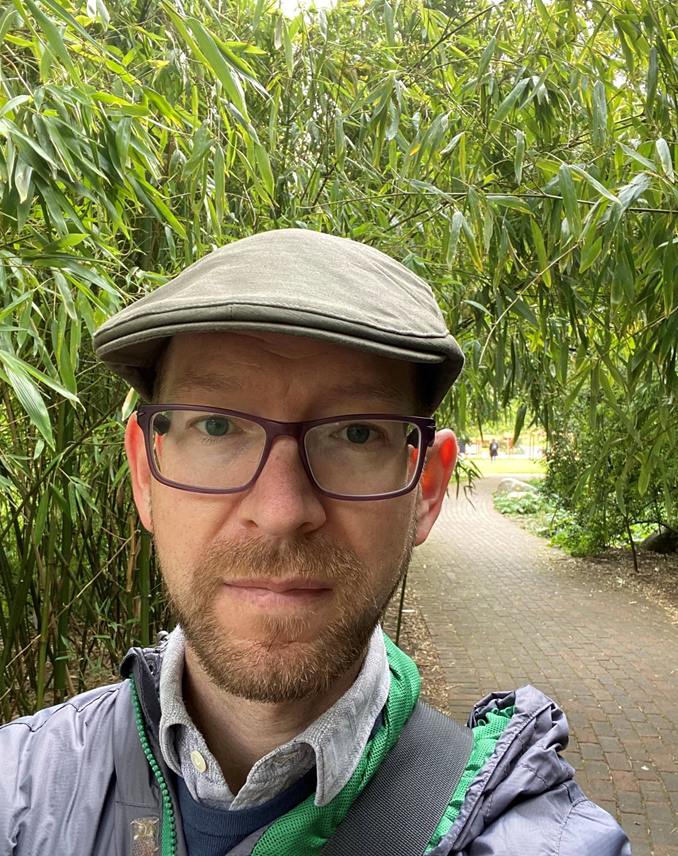
Submitted by Mrs Jane Wallace on Thu, 27/01/2022 - 09:36
An interdisciplinary research centre set to examine the origins of life and its place in the universe has received a £10 million grant from the Leverhulme Trust. The centre will be led by Professor Didier Queloz (Jacksonian Professor of Natural Philosophy), 2019 Nobel Laureate and pioneer in the field, alongside scientists from across the University and our own Dr Andrew Davison from the Faculty of Divinity. The centre will bring together researchers and academics from Applied Mathematics and Theoretical Physics, the Institute of Astronomy, the Cavendish Laboratory, Chemistry, Divinity, Earth Sciences, History and Philosophy of Science, and Zoology, alongside others from around the world.
In 1995, Queloz was responsible for the first discovery of a planet around another star. He has described the new centre as ‘a catalyst’ to develop our understanding of life in the Universe ‘through a long-term research programme that will be the driving force for international coordination of research and education.’ In seeking a deeper understanding of life, its emergence, and its distribution in the Universe, the centre will focus on four themes (1) identifying the chemical pathways to the origins of life, (2) characterising the environments on Earth and other planets that could act as the cradle of prebiotic chemistry and life, (3) discovering and characterising habitable exoplanets and signatures of geological and biological evolution, and (4) refining our understanding of the concepts we use to think about life and its origins, by drawing on a range of traditions studied in Arts and Humanities Faculties, including philosophy, theology, and literature.
Dr Davison is the Starbridge Associate Professor in Theology and Natural Sciences, and Fellow in Theology and Dean of Chapel at Corpus Christi College. Dr Davison has been working on the theological implications of life elsewhere in the universe for several years, and spent a year in Princeton (2016-17) at the Center of Theological Inquiry (CTI) on a NASA-sponsored programme on the Societal Implications of Astrobiology. CTI joins the Faculty of Divinity as a partner in the work of the new Leverhulme centre. Dr Davison’s book Astrobiology and Christian Doctrine will be published later this year. The topic of life elsewhere in the universe also features as a popular component of his third-year undergraduate paper, ‘Theology and Natural Sciences: God and Creatures’.
Dr Davison commented ‘I have been delighted by the warm reception from my scientific colleagues to input from the Arts and Humanities, in my case from Divinity. The Faculty has a strong reputation for work on the search for life elsewhere in the universe: alongside me on the NASA-sponsored programme in 2016-17 was my recently retired colleague in religion and anthropology, Dr Tim Jenkins.’
‘Our Faculty of Divinity is unusual for having an endowed position in theology and natural sciences’, he adds, ‘thanks to the generosity of Susan Howatch almost thirty years ago. Our contribution to the new Centre illustrates the place of Cambridge at the forefront of research between theology and natural science.'
Dr Oliver Shorttle, Associate Professor in both the Department of Earth Sciences and the Institute of Astronomy, writes of this interdisciplinary collaboration that ‘Arts and Humanities involvement with the Leverhulme Centre for Life in the Universe is essential for our core aim of identifying the universal building blocks of life, which the Centre will investigate from a range of astrophysical, planetary, biochemical, and philosophical perspectives. Collaboration with Andrew Davison in constructing our successful bid has already demonstrated how fruitful these cross disciplinary conversations on life and its origins can be, shining a light on the assumptions underpinning science in this field.’
